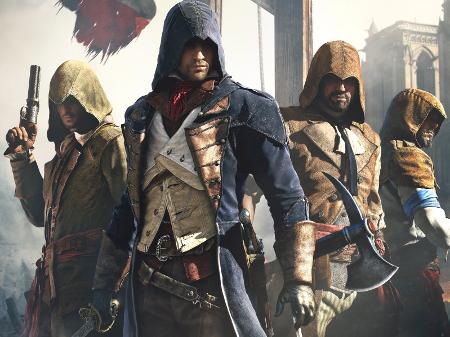

In addition, Ubisoft Montreal had a team dedicated to co-productions, coordinating all of the studios working on Assassin’s Creed: Unity, and facilitating inter-studio collaboration. At the same time, because they were no longer bogged down by dealing with minutiae, it freed creatives and other employees up to consult and collaborate with each other within studios and with their counterparts at other studios. “It gives each team more ownership and less dependency on other studios,” Phord-Toy said.

Managers generally have seven to 10 people reporting to them, with managers and support at every level, which enables staff to have access to resources they need in their roles, and to collaborate effectively across the organization. Instead, that management function is handled separately by a manager, allowing the creative director to put full attention on the content. One of the ways in which Ubisoft implemented this was to ensure that creative directors do not have staff directly reporting to them–i.e., people whom they must manage. Rather than merely decentralizing work across roles and studios, Ubisoft aimed to empower employees to contribute innovative ideas at all levels of the company, as the latest generation of video games continues to require large teams. That challenge was compounded by a natural conflict: Production, project management, technical direction, and other managerial tasks are all often at odds with the creative process. The overarching goal was to translate that vision into a high-quality game built within budget and on time. The Montreal studio took the lead on the game, mapping out the vision and providing coordination for nine other units stationed in Canada, France, Ukraine, Romania, China, and Singapore. 10 talk at a Fast Company Innovation Uncensored event at the video game maker’s San Francisco facility. “ Assassin’s Creed is a big brand, and we definitely needed multiple studios, multiple people working on it,” Lesley Phord-Toy, producer at Ubisoft’s Toronto studio, said in an interview after her Nov.

The previous six Assassin’s Creed top-tier, AAA titles, as they are known in the industry, have sold upward of 78 million units since 2007, according to Ubisoft. The latest installment of the popular video game series, out this week, is Ubisoft’s first foray into the new generation of gaming consoles (alongside Assassin’s Creed: Rogue for the previous console generation, with versions of both games available for PCs). What’s unique to games is the level of iterative development we need to do.


 0 kommentar(er)
0 kommentar(er)
